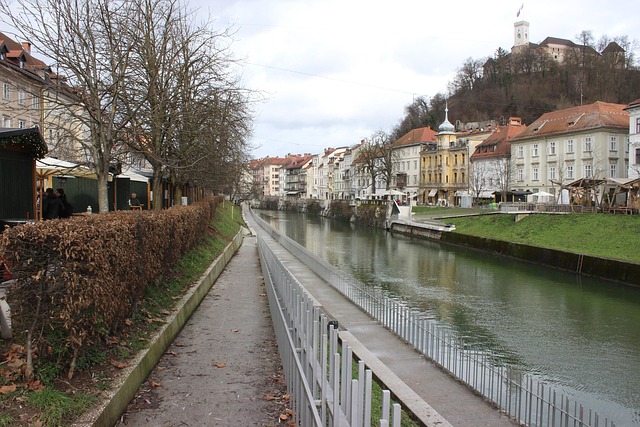In Karachi, particularly in dense areas like Tipu Sultan Road, electricity load shedding disrupts daily life and businesses due to high energy demands. KESC's modernization efforts show promise in balancing demand and supply, but more solutions are needed. Proposed strategies include grid modernization, infrastructure enhancement, diversifying energy sources with renewable projects, and community-level distributed generation for reliable power supply and enhanced resilience during peak periods.
In the heart of Karachi, electricity load shedding near Tipu Sultan Road has become a persistent challenge, disrupting daily life and hindering economic growth. This article delves into the complex issue, exploring its impact on residents and businesses, and examining historical perspectives. We analyze past disruptions and current mitigation efforts, while offering potential solutions to ensure a reliable power supply for Karachi’s urban center. Understanding these factors is crucial in navigating towards a more stable and prosperous future for the city.
- Understanding Electricity Load Shedding in Karachi's Urban Center
- Impact on Residents and Local Businesses Near Tipu Sultan Road
- Historical Perspective: Past Issues and Current Efforts to Mitigate Disruptions
- Potential Solutions and the Way Forward for Reliable Power Supply
Understanding Electricity Load Shedding in Karachi's Urban Center

In the bustling metropolis of Karachi, electricity load shedding is a recurring issue that affects residents and businesses alike. Particularly in urban centers like Tipu Sultan Road, where dense populations and high energy demands are commonplace, this phenomenon becomes more pronounced. Load shedding refers to the scheduled or unscheduled interruption of electricity supply, often implemented by the local power distribution companies to prevent widespread blackouts caused by overwhelming demand.
Karachi, as a rapidly growing city, faces unique challenges in maintaining a reliable power supply. The load-shedding schedule typically varies from area to area, depending on factors like infrastructure capacity, peak energy usage times, and weather conditions. Understanding this complex issue is crucial for residents and businesses operating in Karachi to plan effectively, implement energy conservation measures, and advocate for sustainable solutions that can mitigate the impact of load shedding on their daily lives and operations.
Impact on Residents and Local Businesses Near Tipu Sultan Road

The frequent electricity load shedding near Tipu Sultan Road in Karachi has had a significant impact on both residents and local businesses. Those who call this area home have been left frustrated and inconvenienced, as regular power cuts disrupt their daily routines and responsibilities. From an individual perspective, this means losing access to essential appliances, lighting, and even basic amenities like cooling during the hot summer months. Students preparing for exams or working professionals relying on computers are particularly affected, leading to decreased productivity and potential losses in academic or career opportunities.
Local businesses operating along Tipu Sultan Road have also expressed their concerns. Restaurants, grocery stores, and other retail outlets depend heavily on consistent power supply for their operations. Load shedding results in interruptions of cold storage systems, cash registers, and lighting, directly impacting sales and customer satisfaction. Moreover, the uncertainty surrounding power availability makes it difficult for businesses to plan events, inventory management, or invest in expansion projects, hindering economic growth in the area.
Historical Perspective: Past Issues and Current Efforts to Mitigate Disruptions

In Karachi, electricity load shedding has been a recurring issue for decades, with Tipu Sultan Road being no exception. Historically, severe power outages have disrupted the daily lives and businesses along this bustling thoroughfare. Past issues include prolonged periods of darkness, impacting everything from traffic flow to essential services like hospitals and schools.
However, current efforts have been made to mitigate these disruptions. The Karachi Electric Supply Company (KESC) has implemented various strategies, including grid modernization and renewable energy integration, to balance the region’s electricity demand and supply. These initiatives are crucial steps towards a more stable power distribution system in Karachi, ensuring residents and businesses along Tipu Sultan Road and beyond can thrive without constant interruptions.
Potential Solutions and the Way Forward for Reliable Power Supply

In addressing the recurring issue of electricity load shedding along Tipu Sultan Road in Karachi, several potential solutions emerge as a way forward for ensuring a reliable power supply. One key strategy involves grid modernization and infrastructure enhancement. The city’s power distribution network requires upgrades to accommodate growing demand, particularly in densely populated areas. This includes investing in smart grid technologies, which enable more efficient monitoring and management of electricity flows, reducing losses and improving overall system stability.
Additionally, diversifying energy sources can significantly mitigate load shedding. Karachi could benefit from incorporating renewable energy projects like solar and wind farms, alongside existing fossil fuel-based power plants. Such diversification not only reduces reliance on a single source but also contributes to a cleaner and more sustainable energy future. Moreover, community-level initiatives for distributed generation, such as rooftop solar panels, can supplement the main grid and provide localized resilience during peak demand periods.
Electricity load shedding in Karachi, particularly near Tipu Sultan Road, remains a persistent challenge. This article has explored its impact on residents and businesses, highlighting the need for sustainable solutions. While historical efforts have mitigated some disruptions, the city’s rapid growth demands innovative strategies to ensure a reliable power supply. By adopting advanced grid management technologies, increasing renewable energy sources, and promoting efficient consumption practices, Karachi can strive towards a more stable and resilient electrical infrastructure, improving the quality of life for its citizens.
